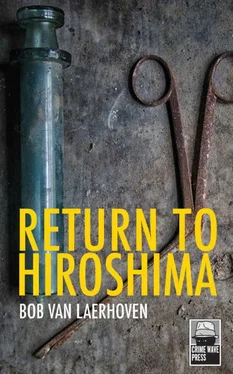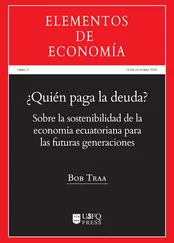Still running full tilt, Reizo Shiga feels the breath of fate brush over him. Tonight is going to be different. Why submit to years of servitude to the Blessed One? Why not take a shortcut to the highest level and show the Blessed One that Reizo Shiga is a disciple with exceptional qualities?.
Greater, perhaps, than the Blessed One himself?
Hiroshima – the Righa Royal Hotel – Beate Becht – night, March 13 th-14 th1995
Beate Becht thinks the Righa Royal Hotel is kitschy, overpriced and amusing. Its pompous domed ceiling makes the lounge look like an old-fashioned UFO. Her room looks out onto a neat square pond with an artificial island, trees and pontoons.
The hotel staff are also a source of amusement, if mixed with occasional irritation. They’re polite, servile and stereotypically inscrutable. Beate, whose friends call her “Peter Pan with boobs” because she’s boyish and has short hair, has spent the last few days wondering whether her father Hermann Becht would have approved of her latest photography project. Years ago, on his death bed, Hermann Becht told his daughter that suffering could not be aestheticized. He was a man of principle to the last. Beate’s publisher is a different kettle of fish. Bruno Günder of Bertelsmann Publishing, the man who canonised single malt whiskey, greeted Beate’s idea of publishing a tribute book to her father with “cosmic enthusiasm”. To her, it would be a way of exorcising her feelings of guilt. As a young photographer with the German army during WWII, her father Hermann had joined the fighting in Berlin to defend the city at the end of the war, when cameras, film and heroic Germans were few and far between. Beate sees echoes of the war in all his later photo-books. She wonders almost every day whether her father’s photo coverage of the Chernobyl disaster nine years ago wasn’t actually a painful, roundabout way of committing suicide. The man was 60 years old when he accompanied vomiting rescue workers and took pictures of men clearing radioactive rubble with spades and wheelbarrows, just after the disaster in Chernobyl. Hermann Becht had indoctrinated Beate from early childhood with his Calvinistic belief in damnation: man is predestined to evil. In her teenage years, Beate raged against her father’s fatalism. Now, at 30, she realises that her anger has become chronic, concealing a minefield of sorrow that she daren’t enter. She compensates by being friendly and polite to everyone. It uses up tons of energy. Beate knows well enough that she’s angry with her father for not understanding her work. Hermann Becht was a press photographer, every inch of him, and he was appalled by the sexually charged punk photos his daughter published. Her work, labelled “neo-symbolic”, was a complete mystery to him, “far-fetched”: shocking, slightly Gothic-looking female nudes, slender nymph-like creatures with chalk-white faces, blood-red lips, heavy eye-shadow – a glimpse of vampirism, a hint of lesbian lust with long fingernails; tethered silhouettes of women, powerless yet endowed with superior sensuality, slavish princesses, some wearing leather masks, their faces hidden, in tortuously painful poses replete with ambiguous passion. One critic wrote that her pictures “personified the ecstasy of the senses run wild”. Black-haired women with large crucifixes between their pallid breasts, naked female torsos with bull’s heads on their shoulders. Her father called her symbolism pretentious. Hermann Becht had never understood that his daughter’s pictures were an attempt to dispel her childhood fears. One of those fears, perhaps the greatest, was her uncertainty about being loved. Did her father love her? Beate Becht never found out. When she reached adolescence and first encountered sexual desire, she wondered whether she would ever be able to love anyone – the powerful intoxication she needed to stir her lust made love seem tame. Ten years later, she published her first book, Forbidden Fruit, which pictured beautiful young women next to dwarfs, invalids, decrepit tramps, and hunchbacks. Languid and pleading, the beauties gazed at their hideous partners, who humiliated and abused them and afterwards carelessly pushed them aside.
Beate is now convinced that things aren’t as bad as they seem and that she simply doesn’t have time for love. She makes sure her needs are satisfied on a regular basis. Man or woman? She leaves that to fate. It makes no difference to her sweaty palms or feelings of inadequacy, of being small and saying the wrong things. She describes herself to her artistic friends as a workaholic, pronouncing the word with a rolling ‘r’ in a self-deprecating parody of her Bavarian accent.
She came to Japan to complete her latest photo project, but the country has been a disappointment thus far. It irritates her that the Japanese, who treated their Second World War prisoners worse than the Nazis, claim to be the victims of the war because of the bombs on Hiroshima and Nagasaki. She’s read in the news editorials that extreme right-wing nationalism has gained more support than ever before during the economic crisis. Powerful political factions are openly demanding Japanese domination of all of Asia. The journalists who wrote about them didn’t capitalise “Great Japanese Empire” for nothing. The atmosphere in the country is not the only disappointment for Beate. Why isn’t the renowned Japanese sense of aesthetics visible in the street? Hiroshima gleams with false glamour and uninspired replicas of American architecture. The city centre, on the other hand, feels grimy and neglected. There’s hardly a trace of classical Japan anywhere.
Beate is lying on her bed in her neat hotel room, which resembles many other neat hotel rooms she’s stayed in over the years. But this one is smaller. She blames the legendary Japanese lack of space. It’s also a little old-fashioned, decorated in beige, light-brown and pink, with large flowers on the bedspread. She lies on her bed of flowers and leafs through the magazines she bought at the supermarket. The pictures disappoint her, their gaudy lollipop colours like cheap MTV ads. Many of the people in the photographs look like mental patients, recently escaped from some institution or other. A garish colour photograph takes up almost the entire cover of one of the magazines.
Beate Becht looks at it and holds her breath.
Hiroshima – the Suicide Club squat – Kabe-cho – Mitsuko – night, March 13 th-14 th1995
The sounds of sleeping people around me make my own sleeplessness all the more painful. I’d like to get up and go into the city, which looks like a colourful funfair at night, but it’s as if my limbs are paralysed. Earlier today, Reizo said: “You have the face of a murderer.” He was teasing, of course, but his words stuck in my mind. They remind me of Mayumi’s death. I must have been about ten. It was towards the end of the day. I remember seeing the sun, the colour of red ochre, drifting in the water like a gigantic egg-yolk. The dilapidated central watchtower of Hashima Island cast long shadows, and I’ve never dared ask my father why I, a child, was taken to the tower. I recall asking for “uncle” Mayumi while two of his followers escorted me up the steep path to the island’s highest point. Mayumi, cheerful and chubby, always ready with a joke, looked after me when my father went on his nocturnal trips to the mainland. He bathed me, told me stories, and brushed my hair with a hundred strokes. Mayumi bowed to my father like a jack-knife and would have walked through fire for him. Why then, had my father’s followers tied him naked to one of the watchtower’s supporting masts? I never found out.
Читать дальше












